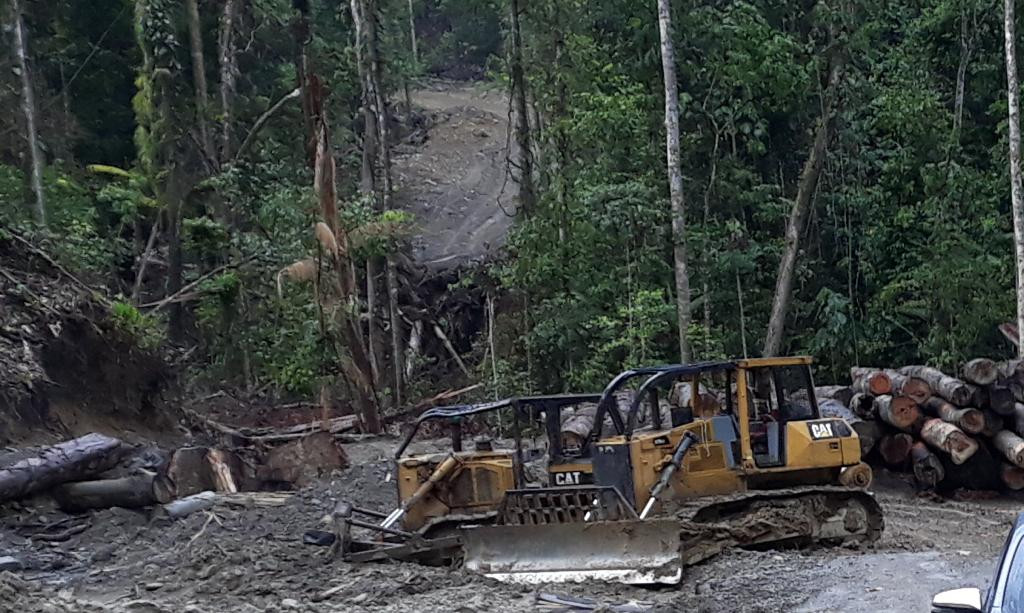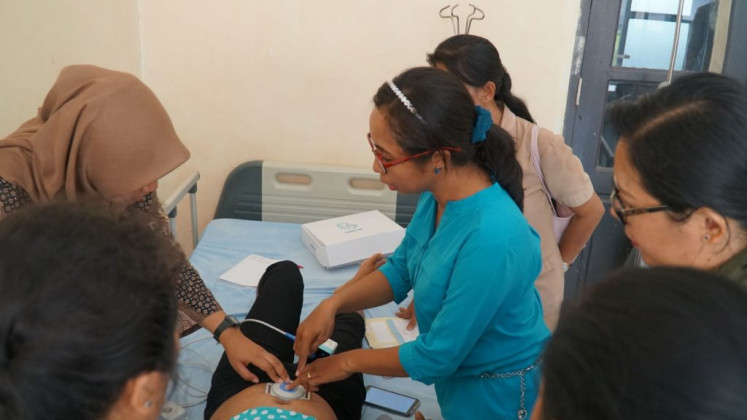Popular Reads
Top Results
Can't find what you're looking for?
View all search resultsPopular Reads
Top Results
Can't find what you're looking for?
View all search resultsGenes and nation: Is Bhinneka Tunggal Ika becoming historical window-dressing?
If different ethnic groups in Indonesia have unique ancestries and histories, then policies that assume everyone is the same culturally, linguistically or medically are either tone-deaf and harmful.
Change text size
Gift Premium Articles
to Anyone
 This undated handout photo shows two bulldozers and logs of various varieties and sizes seized by investigators with the Environment and Forestry Ministry's law enforcement division in an alleged illegal logging case in Sabuai village, Eastern Seram regency, Maluku. (Handout/Environment and Forestry Ministry)
This undated handout photo shows two bulldozers and logs of various varieties and sizes seized by investigators with the Environment and Forestry Ministry's law enforcement division in an alleged illegal logging case in Sabuai village, Eastern Seram regency, Maluku. (Handout/Environment and Forestry Ministry)
O
n Aug. 17, citizens across the archipelago sang anthems and the familiar refrain Bhinneka Tunggal Ika, or unity in diversity. The message is reassuringly simple: One republic, many ethnicities.
But beyond the parades, the reality of Indonesia’s diversity tells a more complicated story. In towns, villages and even forests throughout the archipelago, there are protests, raised the flags of the pirate crew from One Piece and public acts of defiance that emphasize the simmering frustrations with how the government handles its diverse communities.
If “unity” means forcing everyone to speak the same political language and ignoring differences, then Bhinneka Tunggal Ika risks becoming a ceremonial theatre.
The country’s forests are a clear example. Over recent years, the country has lost hundreds of thousands of hectares of trees, driven by legal land clearing, expansion of oil palm plantations and logging concessions. The communities that have stewarded these forests for generations feel the impact most painfully.
These go beyond statistics. They are the shrinking of hunting areas, the loss of wild animals, the narrowing of rivers and the crops that no longer grow where ancestors once lived.
Let’s look at the Punan Batu Sajau Benau in North Kalimantan, a community with whom I’ve worked for the past six years. This small yet culturally rich group relies heavily on the forest for hunting and gathering, and their deep knowledge of the land has been recorded by anthropologists and geneticists.
Their forest faces threats from logging and oil-palm expansion, making it harder to find wild game and tubers, a staple food for the community. Their traditional way of life is squeezed between corporate concessions and the pressure of nearby villages. The Punan’s situation shows how disdain is felt on the ground, something that ceremonial unity cannot fix.


















